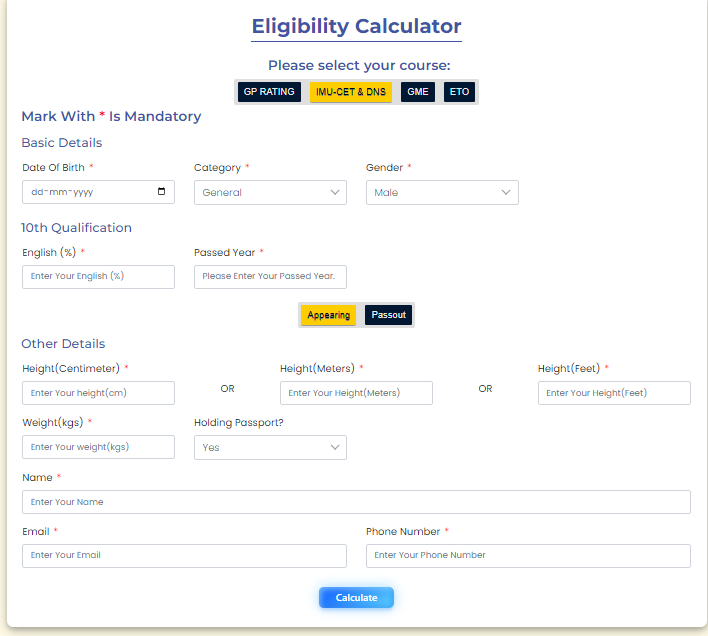Courses
For Beginner
| For Beginner |
|---|
| GME |
| B.Tech |
| ETO |
| IMUCET & Sponsorship |
| G.P. Rating |
| Free Course |
For Professionals
| For Professionals |
|---|
| Engine Side |
| Deck Side |
| G.P. Rating |
| Combo Offers |
| MEO |
| Free Course |
Career
Services
| For Beginner | For Professionals |
|---|---|
| Courses | Courses |
| Expert Counselling | Expert Counselling |
| College Portal | Blogs |
| Blogs | Insurance |
| Our Achievements | Job Portal |
| Ship to Shore |
Courses
For Beginner
| For Beginner |
|---|
| GME |
| B.Tech |
| ETO |
| IMUCET & Sponsorship |
| G.P. Rating |
| Free Course |
For Professional
| For Professional |
|---|
| Engine Side |
| Deck Side |
| G.P. Rating |
| Combo Offers |
| MEO |
| Free Course |
Career
Services
| For Beginner | For Professional |
|---|---|
| Courses | Courses |
| Expert Counselling | Expert Counselling |
| College Portal | Blogs |
| Blogs | Insurance |
| Our Achievements | Job Portal |
| Ship to Shore |





